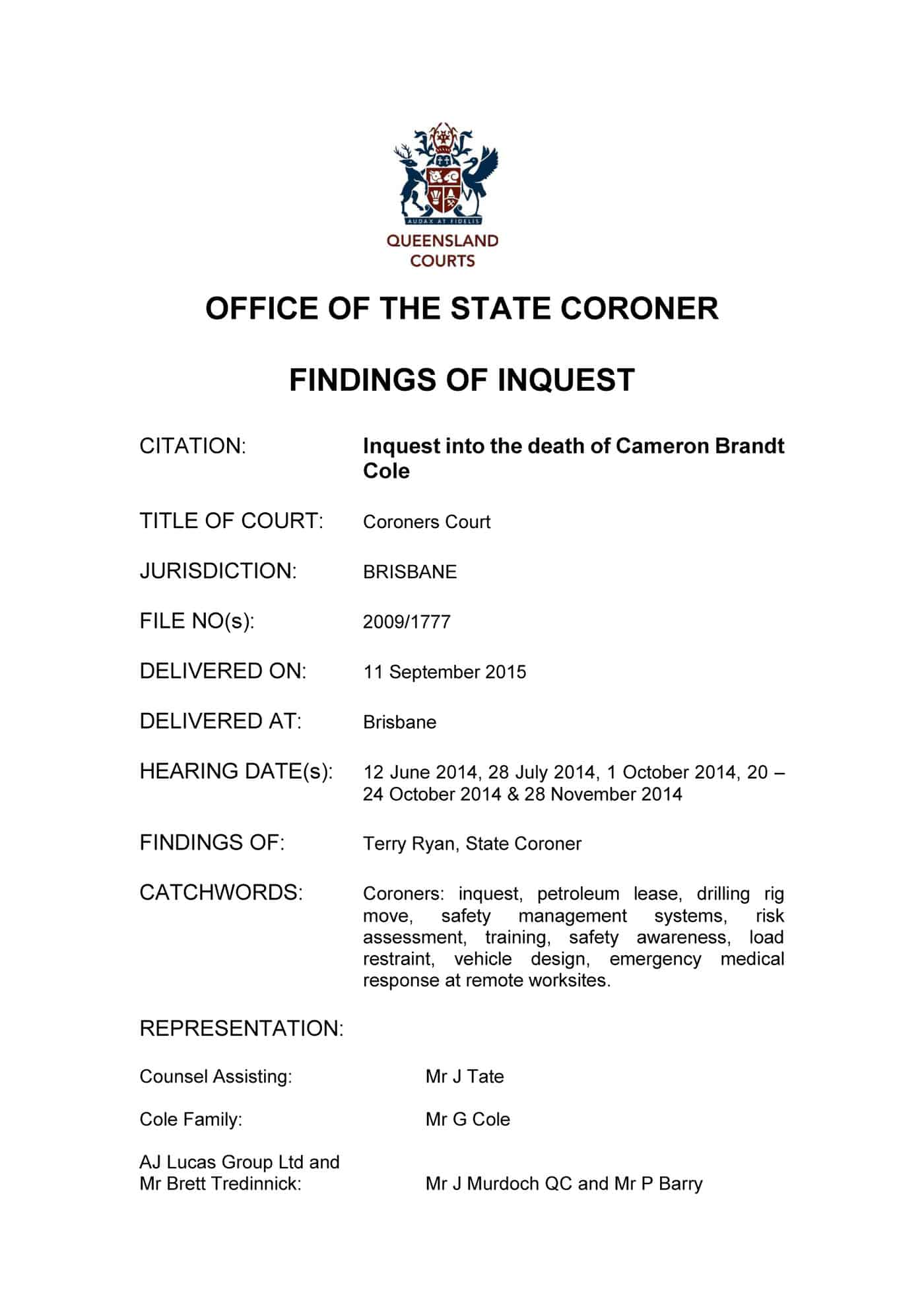 A coronial finding in Queensland in September 2015 illustrates how daily activities can lead to tragedy but also the role of safety culture.
A coronial finding in Queensland in September 2015 illustrates how daily activities can lead to tragedy but also the role of safety culture.
According to one media report, in investigating the 2009 death of 24-year-old Cameron Cole who was hit as a pipe rack fell from a truck, the Queensland Coroner, Terry Ryan, found that
“…the semi-trailer had been over packed, not properly secured and there was no exclusion zone around the vehicle when the load was being released.”
From this event the Coroner makes many recommendations about the safety management of work practices at that time. Many of these reflect common work practices that exist to this day on many Australian worksites.
